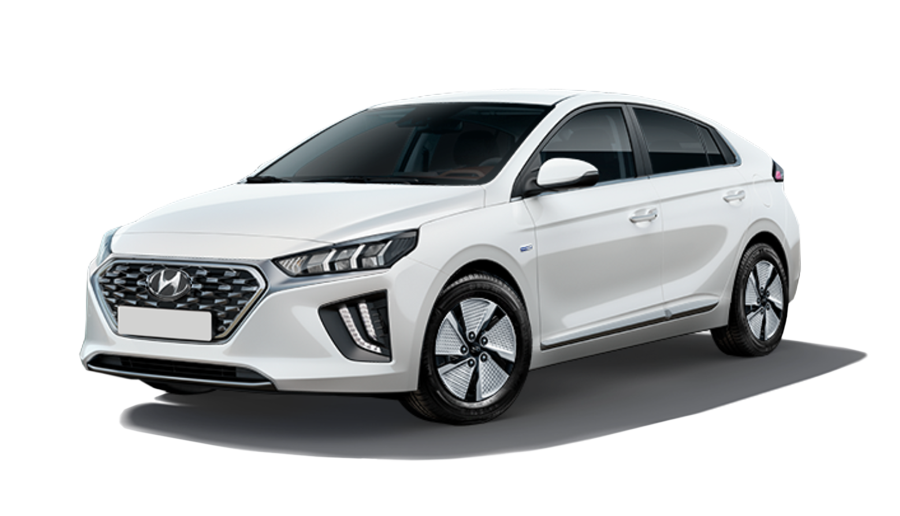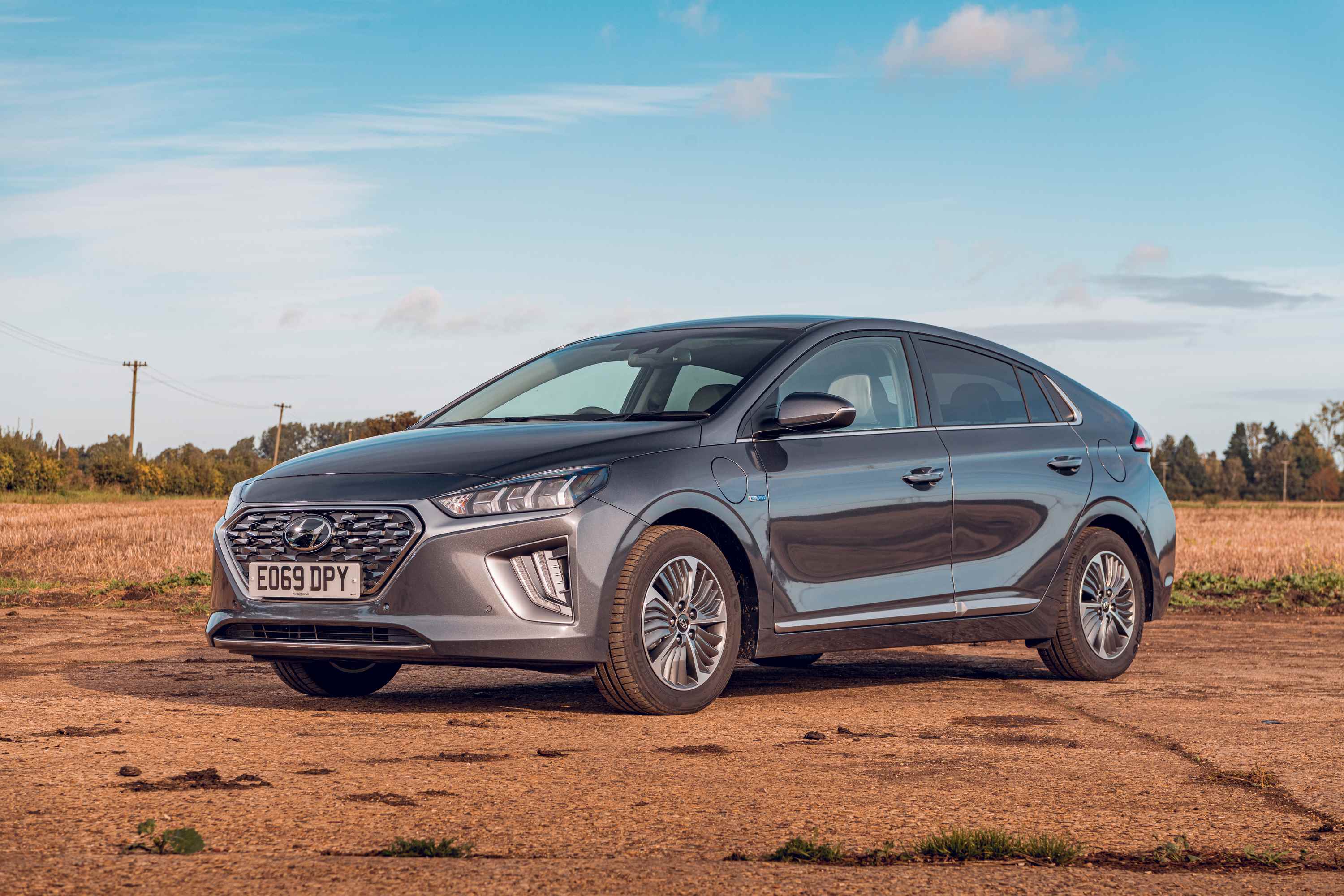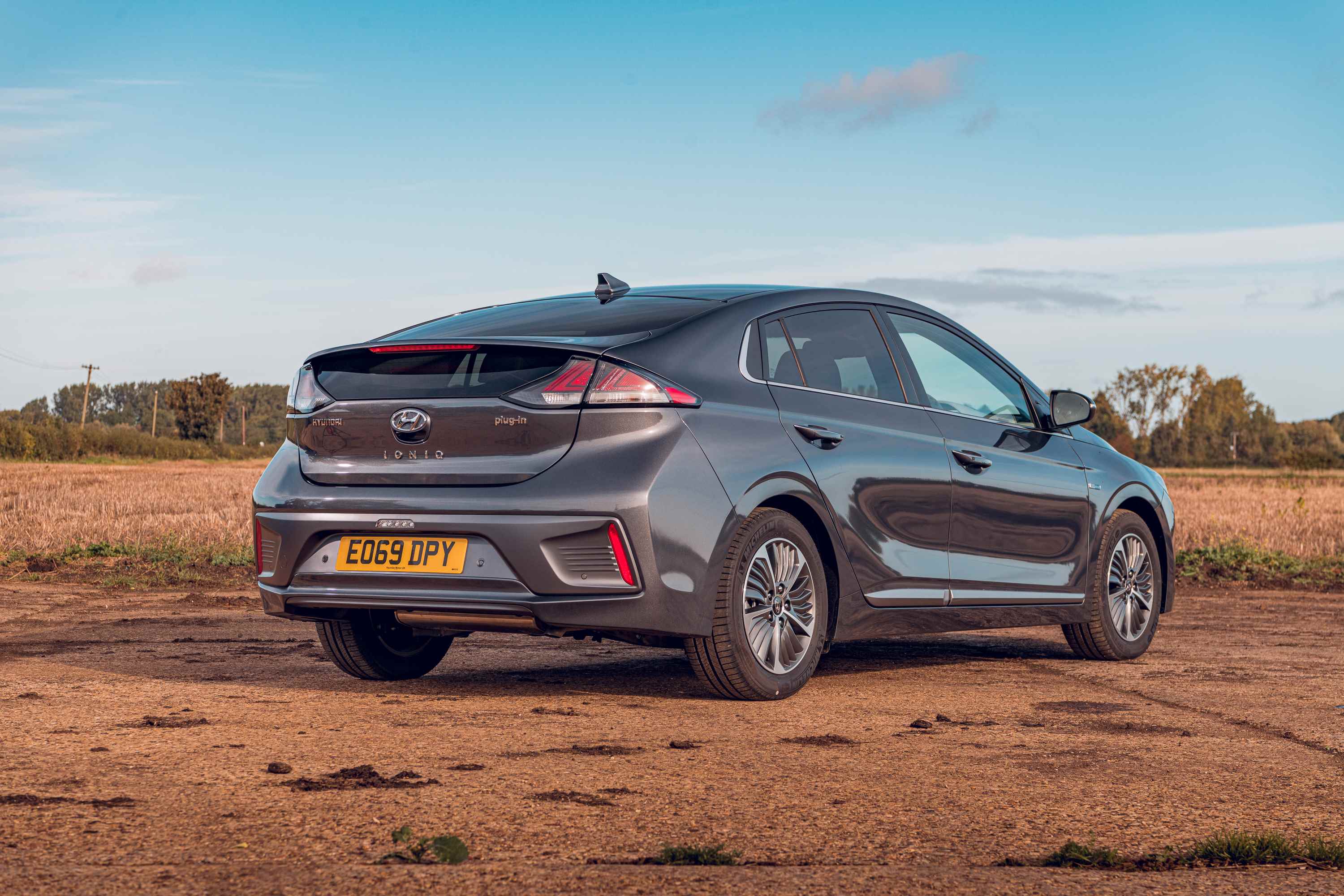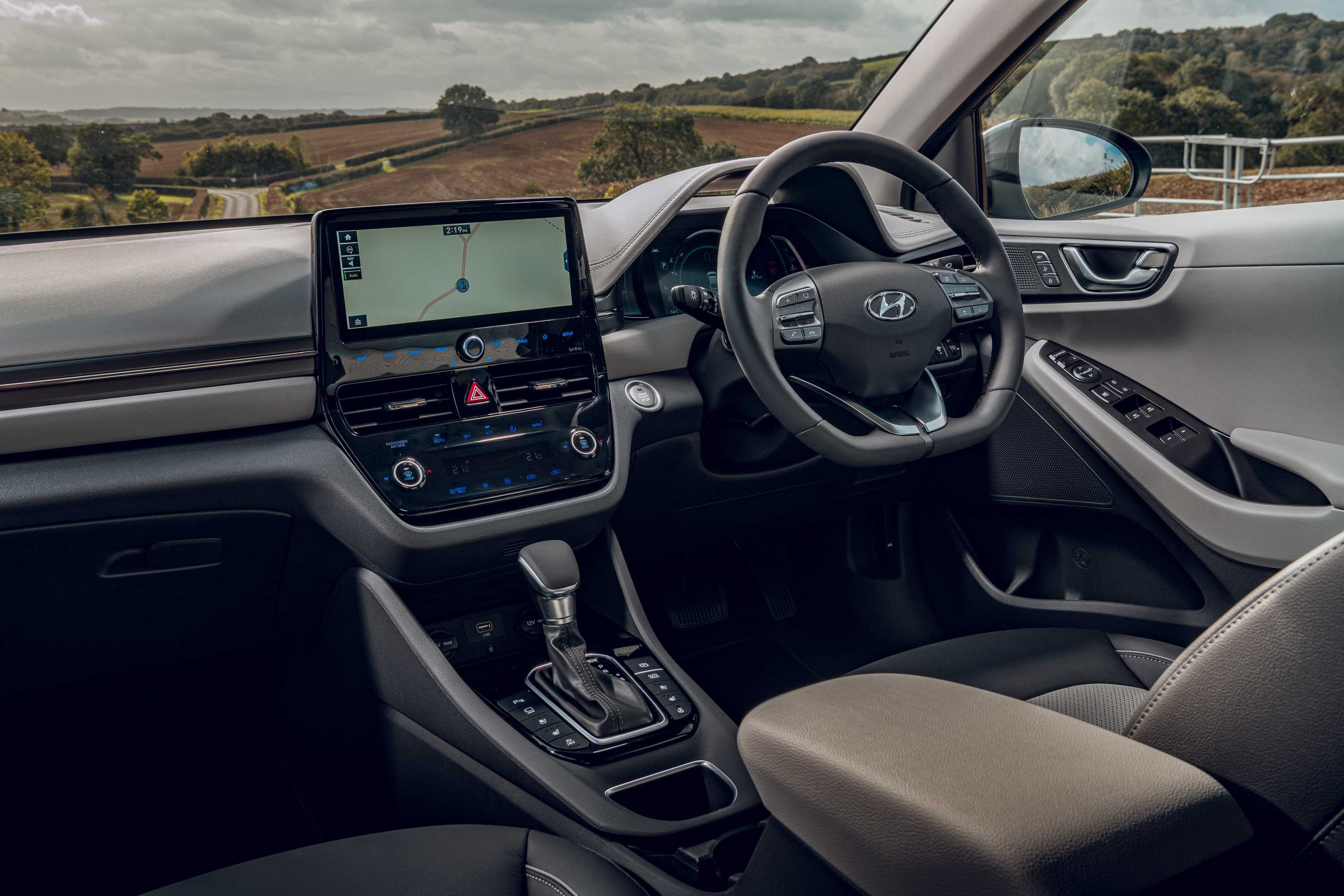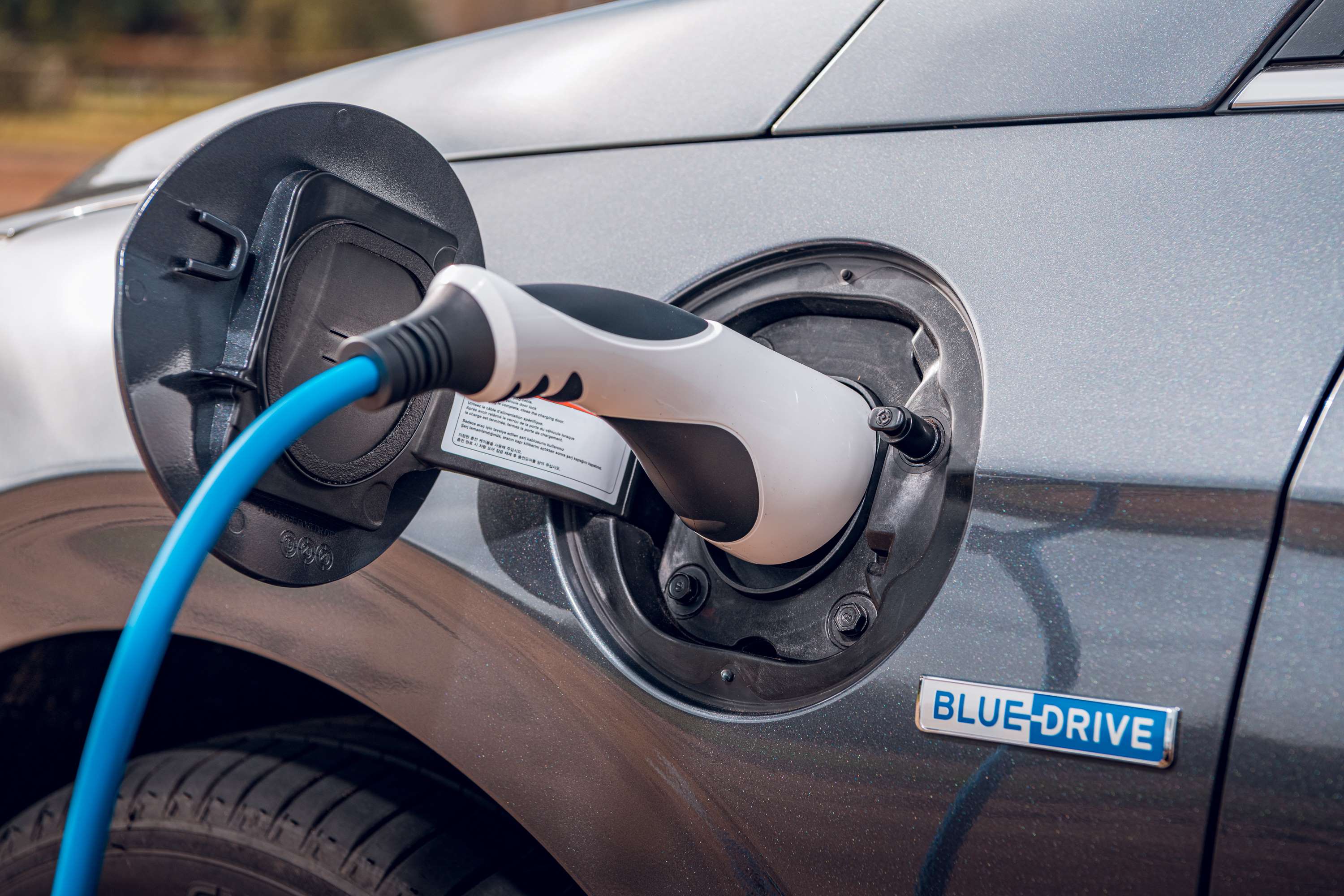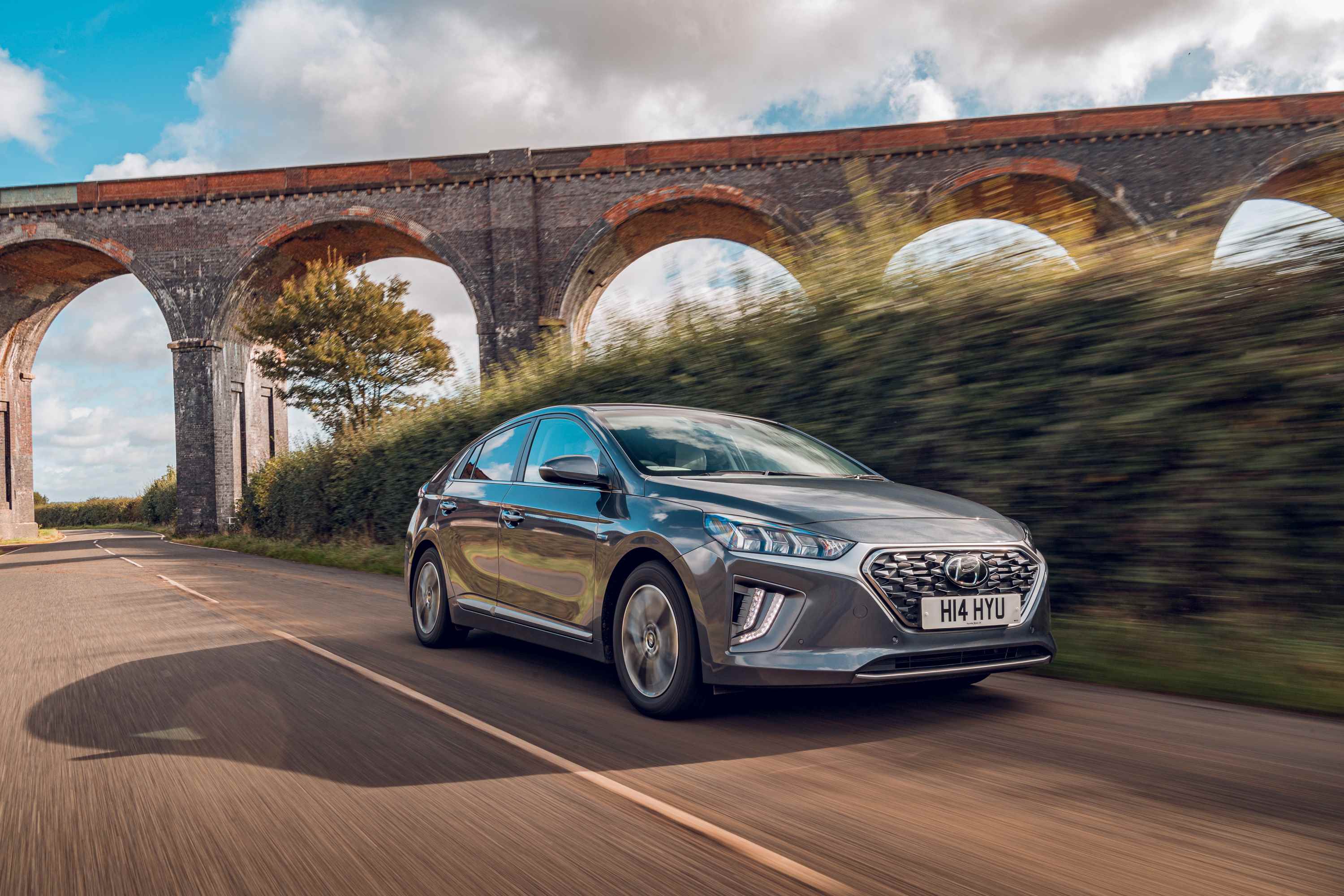Pricing
Plug-in hybrids are a great choice for company car users since they emit very low CO2 and so qualify for cheap Benefit in Kind tax. You’ll pay around half the company car tax for a plug-in hybrid than you will for a standard diesel hatchback.
However, they are quite expensive to buy, not surprisingly given that you’re buying both a combustion engine and a pure electric powertrain. The Hyundai is no different in that you can buy conventional petrol or diesel rivals such as the Ford Focus, or full hybrid alternatives like the Toyota Prius and Corolla, for much less money – or for usefully lower monthly payments.
Having said that, the Hyundai undercuts most plug-in hybrid rivals by many thousands – especially when you factor in its generous equipment, which includes keyless entry, climate control, adaptive cruise control, heated front seats, that excellent infotainment touchscreen system even on base Premium trim. Premium SE adds leather seats, ventilated front seats, front parking sensors and more. It’s certainly good value, but there is new competition from Hyundai’s own sibling – Kia. The Kia Ceed Sportswagon and XCeed models are new for 2020 and both are available with an updated version of the same plug-in hybrid powertrain as is used in the Hyundai Ioniq PHEV.
Running costs
Running costs are where a plug-in hybrid makes up for the higher purchase costs. Plug it in regularly and you can enjoy remarkably low fuel costs, as well as lower tax costs. The Ioniq PHEV is free of road tax in the first year and costs £140 per year thereafter.
Just make sure that your lifestyle suits the plug-in hybrid, as if you do high mileage and can’t plug in very often you may find that the economy isn’t what you expect. You’ll probably only see around 45 to 50mpg from the Ioniq PHEV if it hasn’t been charged, so a normal diesel or full hybrid alternative would be cheaper overall given the lower purchase costs and similar economy. PHEVs are best suited to those who do a lot of short journeys and can charge regularly.
Insurance will be affordable on the Ioniq PHEV; it falls into insurance group 12, which is on a par with the Toyota Prius and many conventional family hatchbacks.
Depreciation can be a bit harsh on the Ioniq in the first year or two, so if you’re planning on buying outright and might sell on in a few years that is likely to be the biggest expense with the car.
A five year, unlimited mileage warranty is standard, which is one of the best around. Kia’s warranty is longer by two years, but is restricted to 100,000 miles.









